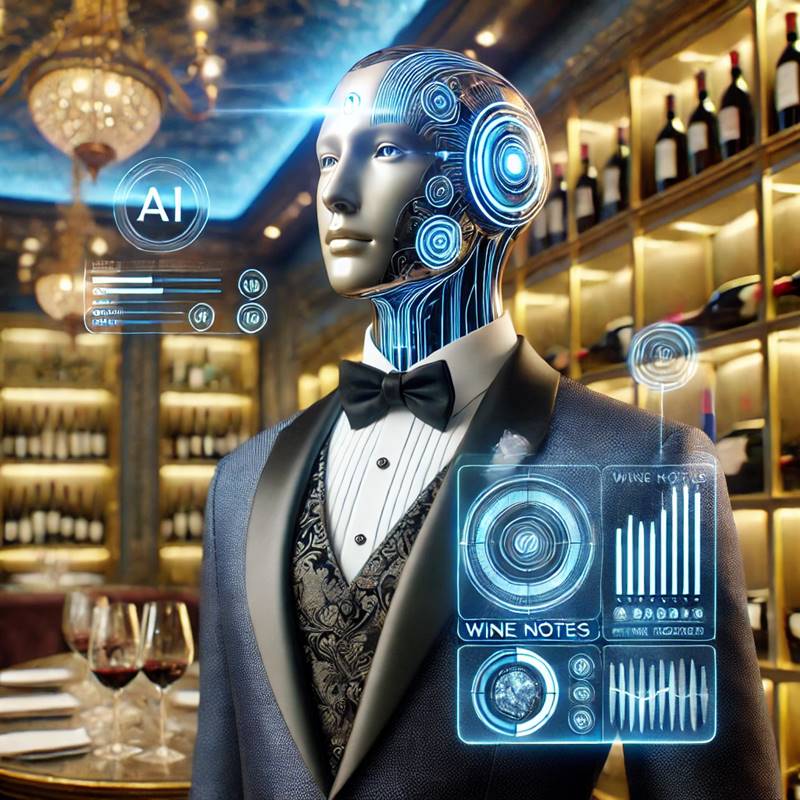Can AI Truly Understand the Art of Wine Appreciation?
AI Explores the Hidden Factors Shaping Wine Enjoyment
2024-06-22

The renowned British drinks sector magazine, Drinks Business, recently hosted an enlightening session on the intersection of artificial intelligence (AI) and the world of beverages. This event sparked profound discussions about the evolving role of AI in the realm of sommeliers and the transformative potential of this technology on the wine experience.
Charles Spence, a professor from the University of Oxford, illuminated the audience with his insights into the myriad external factors that influence our perception of a wine's flavor. Spence highlighted that elements such as lighting, music, and glassware can significantly impact how we perceive taste. He emphasized that preparing the mind to fully appreciate wine is more crucial than merely cleansing the palate.
Chris Hoel, a former sommelier at the prestigious French Laundry restaurant in Napa, shared a poignant anecdote underscoring this point. He recounted that no matter how extraordinary the wine, if a diner is in a foul mood, the experience will inevitably be diminished. Hoel explained how AI can aid in balancing the mood of guests, thereby assisting sommeliers in recommending wines that enhance the overall dining experience.
Hoel expressed a desire for AI to empower him, enabling him to offer wine choices that might not have otherwise crossed his mind. For instance, if a customer loves Burgundy wines, AI could suggest an aged Nebbiolo or a 25-year-old Rioja—alternatives that are both potentially more affordable and exquisite, yet might be overlooked by a human sommelier pressured to upsell pricier options.
One standout in this technological landscape is Preferabli, a beverage recommendation software praised by Hoel for its ability to swiftly identify wines that guests will likely enjoy. Pam Dillon, co-founder and CEO of Preferabli, explained that their AI analyzes 800 different wine characteristics. This capability stems from extensive tasting and cataloging of wines and spirits worldwide, allowing the software to provide highly tailored recommendations.
Despite these advancements, public skepticism toward AI remains a hurdle. Spence cited a study revealing that diners generally preferred human-created recipes over those generated by AI. This finding suggests that the optimal approach lies in combining AI's analytical prowess with the personal touch of a sommelier. The AI's ability to analyze vast datasets can be harmonized with the sommelier's trusted expertise to craft a superior customer experience.
Dillon emphasized that AI is not poised to replace sommeliers but to complement their work, preserving the artistry inherent in wine appreciation. AI can encode individual taste preferences and match them with suitable wine options, effectively empowering consumers to make choices aligned with their personal tastes, with AI acting as a constant guide in their culinary adventures.
As we look ahead, it's likely that trust and acceptance of AI will grow. In the meantime, the human element in sensory perception remains irreplaceable. However, we may soon witness the synergy of AI and human expertise becoming a crucial tool in wine appreciation, offering more personalized and precise recommendations while maintaining the human touch that makes each tasting experience unique.
In conclusion, the Drinks Business event highlighted a pivotal shift in the beverage industry. AI, when used as a complementary tool, holds the potential to enrich the wine experience profoundly. By leveraging AI's analytical capabilities alongside human intuition and expertise, the wine industry can offer more personalized, enjoyable, and memorable experiences to wine enthusiasts worldwide.
Founded in 2007, Vinetur® is a registered trademark of VGSC S.L. with a long history in the wine industry.
VGSC, S.L. with VAT number B70255591 is a spanish company legally registered in the Commercial Register of the city of Santiago de Compostela, with registration number: Bulletin 181, Reference 356049 in Volume 13, Page 107, Section 6, Sheet 45028, Entry 2.
Email: [email protected]
Headquarters and offices located in Vilagarcia de Arousa, Spain.